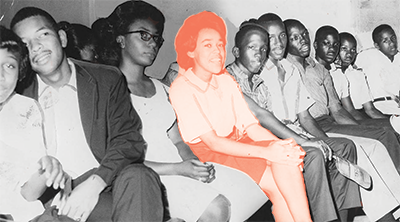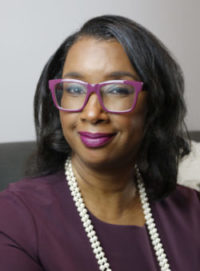|
Dear Friends, Most of my life, I’ve looked forward to celebrating Dr. King’s legacy. I’ve admired his ability to transform how we connect as people, as well as how he, alongside other civil rights leaders, built a revolutionary movement which shined a light on the social, economic, and political inequities faced by Black Americans. And rightfully so, Dr. King is forever memorialized in our history as the architect of the modern American civil rights movement, influencing outcomes across women’s rights, Occupy Wall Street, and Black Lives Matter. But we know that the civil rights movement was not led solely by one man or even a group of men. Truth be told, thousands of unsung women—and in particular Black women—were the backbone of the movement. The person I’d like to share King’s spotlight with on this holiday is my latest and greatest “shero”: Ella Jo Baker. For me, it’s bittersweet that Ella Jo Baker is not a household name, because by all accounts she is the Godmother of the civil rights movement, having stood shoulder to shoulder with Dr. King as a leader and ally, serving often in the shadows and behind the scenes. Born in the South, Ella Jo Baker was a full-time activist working around the clock with leading civil rights organizations including the NAACP (National Association for the Advancement of Colored People) in the forties, the Southern Christian Leadership Conference (SCLC) in the fifties, and as co-founder of the Student Nonviolent Coordinating Committee (SNCC) in the sixties. Across all of these organizations, she served as strategist, advisor, mentor, mobilizer, abolitionist and catalyst to a movement that would strategically support thousands to nonviolently resist legal racial segregation while advancing the humanity and economic opportunity for all people. As a masterful grassroots organizer, she is most widely known for convening a coalition of Black and White college students who fueled the momentum behind sit-ins at lunch counters and other public spaces where Black and Whites could not co-exist. Ella’s coalition of young people would evolve into her co-founding of the SNCC (pronounced Snick).  One of Ella’s greatest gifts to the civil rights movement was her mentorship of young social activists who wanted to change the world, and her service as a bridge-builder across so many organizations. In fact, she directly unleashed the activism of equity champions like Julian Bond, Fannie Lou Hamer and Black Panther Stokely Carmichael. I’m also proud to say that through funding from the YWCA, Ella convened YWCA college student council members to train them in the non-violent resistance strategies and mobilizing them to join the civil rights movement. This resulted in young women of the YWCA being among the thousands of young people protesting racial segregation in the South. Additionally, she mentored two young White women, Mary King and Sandra Cason “Casey” Hayden, members of the YWCA college coalition that would help build a bridge between the civil rights movement and the women’s rights movement. One of Ella’s greatest gifts to the civil rights movement was her mentorship of young social activists who wanted to change the world, and her service as a bridge-builder across so many organizations. In fact, she directly unleashed the activism of equity champions like Julian Bond, Fannie Lou Hamer and Black Panther Stokely Carmichael. I’m also proud to say that through funding from the YWCA, Ella convened YWCA college student council members to train them in the non-violent resistance strategies and mobilizing them to join the civil rights movement. This resulted in young women of the YWCA being among the thousands of young people protesting racial segregation in the South. Additionally, she mentored two young White women, Mary King and Sandra Cason “Casey” Hayden, members of the YWCA college coalition that would help build a bridge between the civil rights movement and the women’s rights movement. So today, ahead of MLK Day, connecting with the legacy of Ella Jo Baker inspires me and helps further fuel my passion for the YWCA mission, our programs, our community and the people across the organization who bring them to life. Similar to Ella Jo Baker, we unleash the potential in people, particularly young people who have the audacity to dream a better world, imagine new possibilities and drive positive change. In celebration of the contributions of Ms. Baker and Dr. King, Nicole  Nicole R. Robinson CEO, YWCA Metropolitan Chicago |
|
YWCA Metropolitan Chicago
1 North LaSalle Street, Suite 1700
Chicago, Illinois 60602
1-866-525-YWCA (9922)
[email protected] |
|